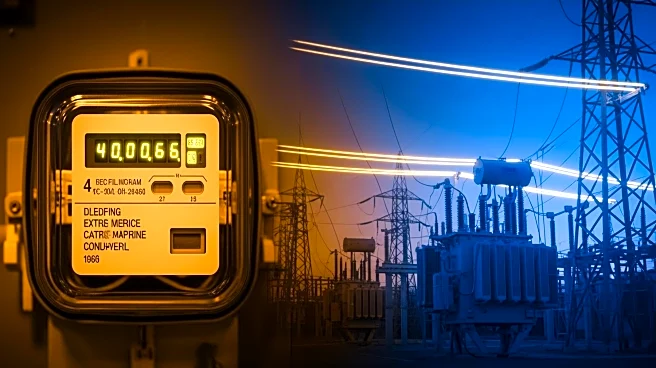What's Happening?
Florida Power & Light (FPL), the largest electric utility in the United States, has received approval from the state regulator to increase base rates for customers over the next four years. This decision is expected to lead to significant rate hikes,
with base-rate increases of $945 million in 2026 and $705 million in 2027. Additional amounts will be collected in 2028 and 2029 for solar-energy and battery-storage projects. Starting January 1, 2026, the average residential electric bill for a customer using 1,000 kilowatt-hours will increase by $2.50 per month, raising bills from $134.14 to $136.64 in most areas of Florida. The agreement, developed with a coalition of customer groups, aims to set rates through 2029. FPL argues that higher rates are necessary to invest in electric service infrastructure due to increased costs of components and labor.
Why It's Important?
The rate hike by FPL comes at a time when inflation and the cost of living are high, affecting affordability for many Americans. FPL serves approximately 12 million people, making it a significant player in the industry and potentially influencing other utilities. Critics argue that the increase will exacerbate the affordability crisis in Florida, where many families are already struggling with high utility bills. Consumer and environmental groups have voiced opposition, claiming the rate hike prioritizes corporate profits over consumer welfare. The decision could set a precedent for similar actions by other utilities, impacting the broader energy market and consumer costs.
What's Next?
The new rates are scheduled to take effect on January 1, 2026. Legal challenges are expected, with consumer groups planning to contest the increase in front of the Florida Supreme Court. The outcome of these challenges could influence future regulatory decisions and rate-setting practices in the state. Stakeholders, including consumer advocacy groups and environmental organizations, are likely to continue their opposition, seeking to protect consumers from rising costs.















